
“Why – what are you doing in here, Egelric?” Matilda cried in surprise. “I was looking for Alred.”
“His Grace has ridden out to the mill. I am keeping his chair warm for him.”
“To the mill with Margaret? Oh, my! No, no, don’t get up. Keep his chair warm, by all means. I shall simply take the other. What are you writing there?”
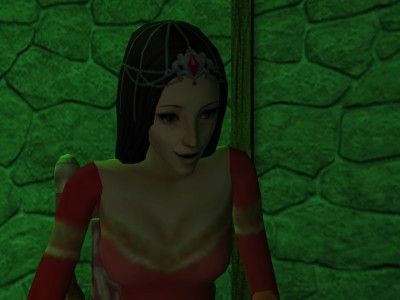
“I’m only doing his young lordship’s Latin for him,” Egelric laughed.
“You are doing what?”
“What I said,” he grinned, twiddling the quill in his fingers. “His Latin.”
“How is he supposed to learn anything if you do it for him?”
“His young lordship is about to learn an excellent lesson. More useful even than amabo, amabis, amabit.”
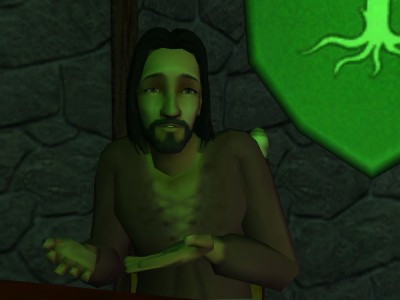
“How so?” she asked, intrigued.
“He is about to learn that it never pays to cheat. I can read well enough, but I scarcely know how to write my name. Father Brandt is going to take one look at my hen-scratch and haul Dunstan out back of the woodpile by his ear. Besides which, it makes an excellent lesson for me. I certainly wish I had learned to write when I was a boy. I don’t think that one can learn anything new at my decrepit age.”
“Don’t say that, Egelric! You’re scarcely more than a year older than I!”
“Your Grace has forgotten more than I shall ever learn.”
“That’s precisely what worries me,” she laughed. “If I do, then there will be very little left!”

“I didn’t mean it that way.”
“I know. I can tease you, too, can’t I?”
“I consider it an honor,” he smiled.
She laughed, and then she cocked her head and sighed. It was too bad. He was otherwise such a good man.
“What is it? Have I said something wrong after all?”
“Oh, no. I suppose I’m only a little sad.”
“May I ask why?”
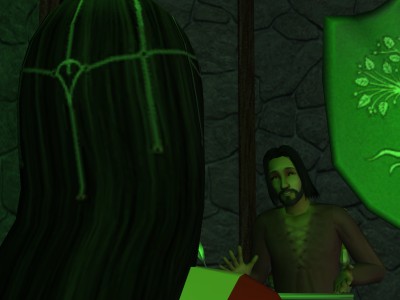
“I’m a little disappointed.”
“May I ask in what or whom?”
“I’m a little disappointed in you, Egelric.”
“In me? Why?” he asked, looking concerned.
“I believe you have broken one of the Ten Commandments.”
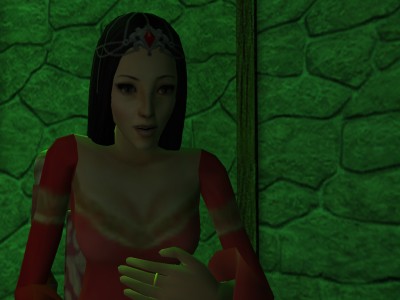
“I may have, but I believe the elf was already dead, so I am not sure that counts as one.”
“That would not be murder in any case, or else my husband would be a murderer, and any soldier.”
“What’s left then? My parents are dead, but I believe I do honor them. I haven’t borne false witness, I haven’t stolen anything, and I try to love the Lord and keep the Sabbath day. That doesn’t leave much besides adultery and coveting my neighbor’s wife,” he laughed.
“Perhaps that’s it then,” she said quietly.
He stopped laughing at once. “What?”
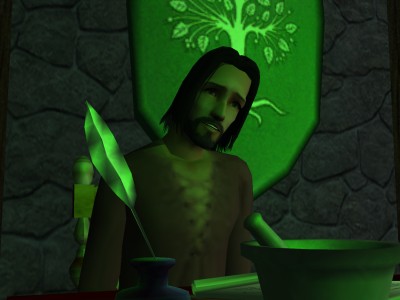
“I know a little something about you, Egelric.”
From the guilty look on his face, she saw it was true. “How do you know?” he asked, and his voice was no more than a whisper.
“I believe it’s obvious if one knows to look for it. But Alred told me it was true.”
“How does he know?”
“I thought perhaps you had simply told him.”
“Never.” His face was pale beneath the green light.
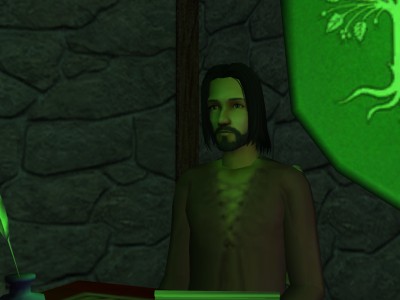
“Well, it will be well-known sooner or later.”
“I hope not.”
“Eventually it will be obvious even if one doesn’t know to look for it.”
He set the quill down and laid his face in his hand. She saw it trembled, and she pitied him. She could not pity Maud, who had no shame, but she pitied him.

“I never thought anyone knew,” he said after a while.
“I don’t think many people do. Perhaps only Alred and I. Sigefrith doesn’t know, of course. I shan’t tell him, and I know Alred doesn’t mean to.”
“Thank you. And please – please don’t tell Gunnilda. I wouldn’t have her know.”
“Of course not, why would I?”
“I don’t know,” he murmured. “I simply – I think it would be much harder if she knew.”
“It must be hard for you in any case,” she said after a time. “You love her very much, don’t you?”
“Very much,” he agreed. “And it’s very, very hard.”
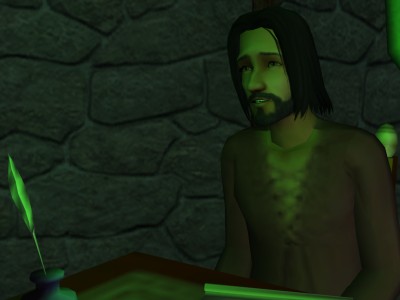
“I’m terribly sorry, Egelric. I wanted to be angry at you, but I can’t be. I suppose we can’t help whom we love.” Clearly not, she thought, if such a man could love a witch like Maud!
“And here I sit, conjugating amare!” He pushed the parchment away with a rueful laugh. “I love, I have loved, I shall love. But I needn’t have bothered trying to learn to write it on parchment. I suppose such things can be read just as easily on faces.”
“Oh, Egelric,” she sighed as she rose. “Yours is a sheaf of sorrowful poetry just now. I shall leave you to your Latin.”
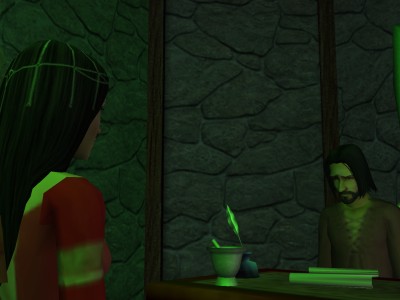







That's one big misunderstanding you have going on there! But think how ashamed Matilda will be when she finds out the truth!